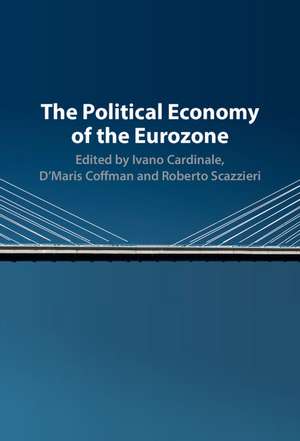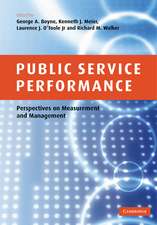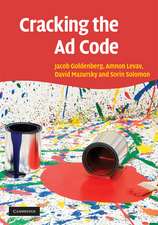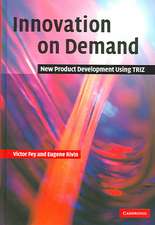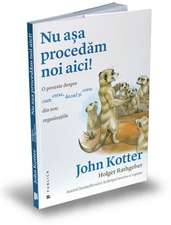The Political Economy of the Eurozone
Editat de Ivano Cardinale, D'Maris Coffman, Roberto Scazzierien Limba Engleză Hardback – 11 oct 2017
| Toate formatele și edițiile | Preț | Express |
|---|---|---|
| Paperback (1) | 420.71 lei 6-8 săpt. | |
| Cambridge University Press – 23 feb 2022 | 420.71 lei 6-8 săpt. | |
| Hardback (1) | 1036.93 lei 6-8 săpt. | |
| Cambridge University Press – 11 oct 2017 | 1036.93 lei 6-8 săpt. |
Preț: 1036.93 lei
Preț vechi: 1205.73 lei
-14% Nou
Puncte Express: 1555
Preț estimativ în valută:
198.41€ • 207.72$ • 164.18£
198.41€ • 207.72$ • 164.18£
Carte tipărită la comandă
Livrare economică 05-19 aprilie
Preluare comenzi: 021 569.72.76
Specificații
ISBN-13: 9781107124011
ISBN-10: 1107124018
Pagini: 350
Ilustrații: 45 b/w illus.
Dimensiuni: 160 x 237 x 37 mm
Greutate: 0.95 kg
Editura: Cambridge University Press
Colecția Cambridge University Press
Locul publicării:New York, United States
ISBN-10: 1107124018
Pagini: 350
Ilustrații: 45 b/w illus.
Dimensiuni: 160 x 237 x 37 mm
Greutate: 0.95 kg
Editura: Cambridge University Press
Colecția Cambridge University Press
Locul publicării:New York, United States
Cuprins
1. The Eurozone as a political economy field Ivano Cardinale, D'Maris Coffman and Roberto Scazzieri; Part I. Comparative Historical and Institutional Perspectives: 2. Fiscal states and sovereign debt markets: a new paradigm for apprehending historical structural change D'Maris Coffman; 3. From sovereign nations to federal states. Creating stable systems of public finance in America and Germany: lessons for the Eurozone James Macdonald; 4. An historical perspective on the European crisis: the Latin Monetary Union Luca Einaudi; 5. Conditionality, fiscal rules and international financial control in the European periphery before 1914 Ali Coşkun Tunçer; 6. Snakes and ladders: navigating European monetary union Duncan Needham; Part II. Multi-Level Interdependencies: 7. Liquidity architectures and production arrangements: a conceptual scheme Roberto Scazzieri; 8. Political economy and the constitution of Europe's polity: pathways for the common currency beyond neo-functional and ordo-liberal models Adrian Pabst; 9. Sectoral interests and 'systemic interest': towards a structural political economy of the Eurozone Ivano Cardinale; Part III. Political Economy of Structural Governance: 10. The German growth model, transnationalization and European imbalances Finn Marten Körner and Hans-Michael Trautwein; 11. Exploring sectoral conflicts of interests in the Eurozone: a structural political economy approach Ivano Cardinale and Michael Landesmann; 12. The impact of economic crisis on Eurozone manufacturing Marco Fortis; 13. Fiscal systems and fiscal union: historical variety and policy challenges D'Maris Coffman and Ali Kabiri; 14. China's investment in the Eurozone: a policy view Yuning Gao; 15. Eurobonds for EMU stability and structural growth Alberto Quadrio Curzio; 16. How false beliefs about exchange rate regimes threaten global growth and the existence of the Eurozone William White; Part IV. Framing the Eurozone: 17. Framing the Eurozone: heuristics for analysis and policy Ivano Cardinale, D'Maris Coffman and Roberto Scazzieri.
Recenzii
'This wide-ranging collection of essays brings a new level of sophistication to the analysis of the Eurozone. It considers the complex interrelationships of past and present, of different levels of aggregation and varying interests, to offer an original and searching approach to a vital topic.' Martin Daunton, University of Cambridge
'So far, no country has left the Eurozone or been expelled. Membership keeps expanding despite widespread and well-argued doubts by both economists and political scientists of its long-run feasibility. The accumulated advantages of the common currency as experienced across and within the member countries may well be the key to its continued survival. To sustain the Eurozone, however, policy makers will have to implement the kinds of analyses made both across and within all the social sciences as shown by the authors here.' Larry D. Neal, University of Illinois
'So far, no country has left the Eurozone or been expelled. Membership keeps expanding despite widespread and well-argued doubts by both economists and political scientists of its long-run feasibility. The accumulated advantages of the common currency as experienced across and within the member countries may well be the key to its continued survival. To sustain the Eurozone, however, policy makers will have to implement the kinds of analyses made both across and within all the social sciences as shown by the authors here.' Larry D. Neal, University of Illinois
Descriere
This book proposes a new way of thinking about the Eurozone, exploring the overlap between its economic and political interdependencies.
